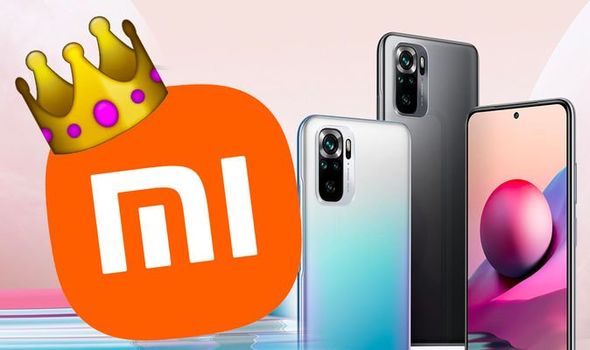Xiaomi has surpassed Apple as the world’s largest smartphone vendor for the first time, having passed Samsung in the second quarter of 2021. Xiaomi tops the global market with 17.1 percent, Samsung is second with 15.7 percent, and Apple is third with 14.3 percent, according to Counterpoint Research’s July numbers.
Xiaomi’s market share climbed by 26% month over month, according to Counterpoint. Tarun Pathak, Director of Research at Counterpoint, explains why: “Since Huawei’s slump began, Xiaomi has made persistent and aggressive attempts to fill the void left by this loss. The OEM has expanded in traditional Huawei and HONOR markets, including Europe, China, the Middle East, and Africa. In June, Xiaomi was bolstered further by the revivals in China, Europe, and India, as well as Samsung’s drop owing to supply chain issues.”
The Reason Behind Huawei’s Declining Sales Graph
Huawei’s market share has been dropping as the company has felt the effects of the multi-year US export prohibition. Huawei continues to make paper announcements, but the main brand lacks chips and software, and the sale of its sub-brand, Honor, is dwindling.
Xiaomi presently offers 58 smartphone models on its global website, covering every market segment. Its portfolio includes smartphones priced under $100 and cutting-edge foldable such as the Mi Mix Fold and premium phones such as the Mi 11 Ultra, which features a second back screen integrated into the camera hump and a big 50 MP 1/1.12-inch sensor. Xiaomi is a market leader in its native China, the world’s largest smartphone market, and a significant player in India. The firm does not sell its mobile phones in the United States.
Hurdles Faced by Samsung
According to Counterpoint, Samsung, which Xiaomi surpassed in Q2-21, is currently facing challenges due to the debut of COVID-19 in Vietnam. Along with China and the company’s home country of South Korea, Samsung has a sizable phone manufacturing presence in Vietnam. According to Counterpoint Senior Analyst Varun Mishra, “Samsung’s production was affected in June, resulting in device shortages across channels. Xiaomi gained the most from Samsung’s A series’ short-term gap due to its excellent mid-range portfolio and broad market penetration. Once Samsung regains its footing, it is likely that the ranks will reshuffle”.
What Irks Samsung
Despite Counterpoint’s assurances that Samsung’s difficulties are transient, the business appears unhappy with its market position. According to South Korean news site The Elec, Samsung Electronics is “extending its management examination” of the mobile market. Samsung does this, Elec reports, “when the top leadership believes there is a problem with a certain business unit”.
According to the publication, “Samsung is highly likely to miss its Galaxy S21 sales target,” even though the device has sold 13.5 million devices in the first half of the year. The S20 sold in the mid-20 million levels during the same period, while previous Galaxy S models were in the 30 million range. While customers may be keeping their smartphones for longer periods, Xiaomi does not appear to be having these concerns.
The Lee Factor
Samsung is in limbo, as its chairman, Lee Jae-Yong (a.k.a. Jay Y. Lee), remains imprisoned on bribery charges. Lee has a parole hearing this month that might result in his release, and some South Koreans are even asking for Lee’s pardon, given the corporation’s importance to the South Korean economy (it accounts for around 15% of GDP). The Elec speculates that with Samsung’s CEO set to be released soon, a study of the company’s various divisions may already be underway to enable Lee to make decisions quickly following his release.



